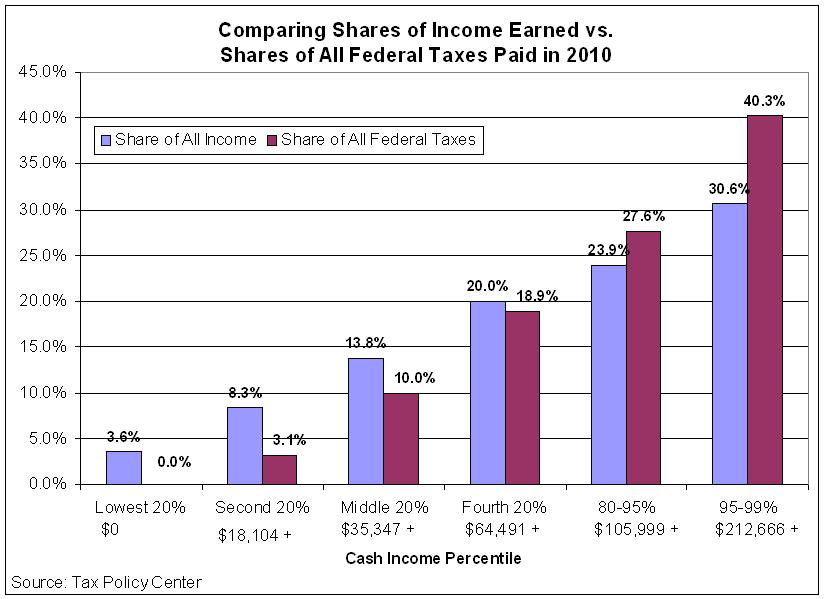Last week, Greg Mankiw posted this graph without comment:

I thought there was something weird about the graph, and it’s been nagging at me. For one thing, it compares the bottom four quintiles to the top 5 percent of Americans. For another, it ignores non-federal taxation. (State and local taxes are more difficult to calculate, I suppose.) So I dug around and found the data* to produce this graph, which compares the share of income earned pre-tax to the share of income kept post-tax. It still only counts federal taxes, but it seems a more honest graph:
Two things are noticeable right away: the top quintile earns more than half of all income in the United States, and only the top quintile loses ground relative to its pre-tax share because of federal taxation. Many goods consumed by the richest 20% of Americans are signalling goods, and thus only valued comparatively (nicer house, better clothes, fancier car, more exclusive schooling for one’s children, etc.) But of course not everything is pure signalling, so relative inequality may be less important that absolute inequality, just as relative wealth may be less important than absolute wealth. Not everything is about keeping up with the Joneses. So if we can bypass these questions of fairness and move on to the relevant question, which is how large a GDP it is we’re sharing, I think that would be good. Tax policy will certainly have implications for future growth, but let’s not feel too bad for the top quintile.
*My numbers are from 2006, supplied by the CBO. Mankiw’s chart is based on estimates of 2010 made by the Tax Policy Center in August of 2009.
Leave a Reply